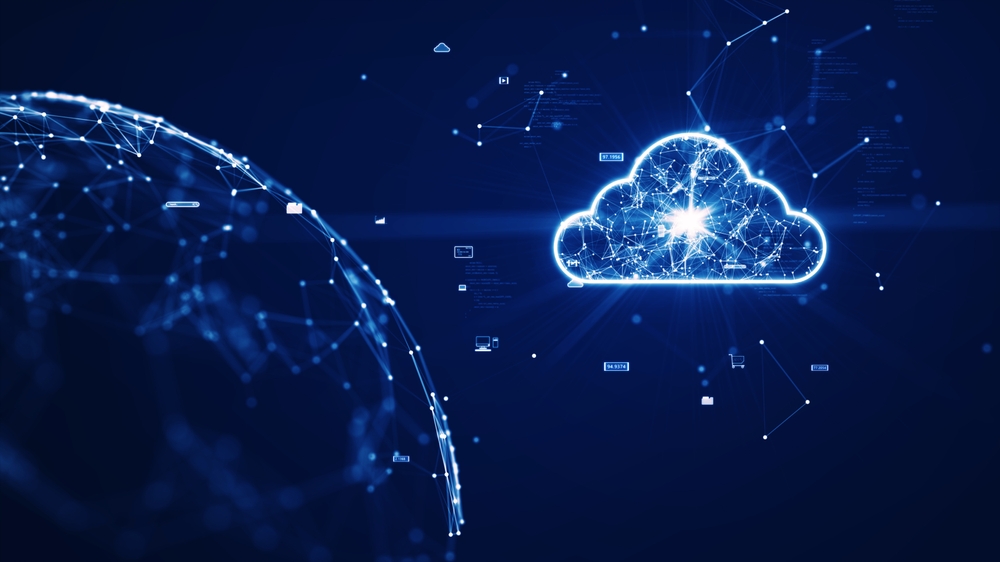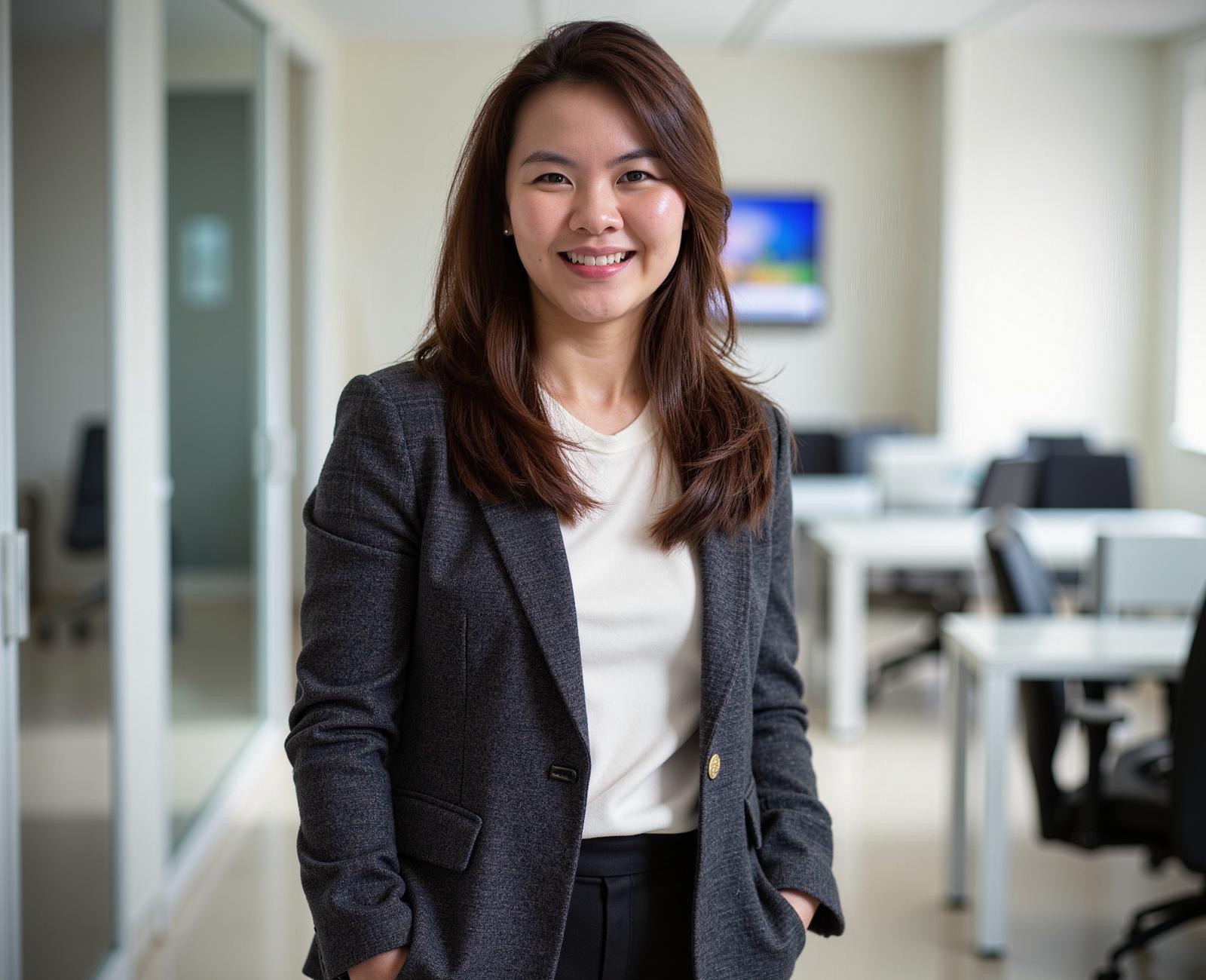“We are proud to introduce new strategic initiatives at ATxEnterprise 2025”
Joyce Wang currently serves as Event Director for ATxSG (Asia Tech x
Singapore) at Informa Festivals, where she leads one of Asia’s most prominent government-backed technology
and innovation platforms. Her remit includes strategic oversight, high-level
stakeholder engagement, and the end-to-end delivery of an event that convenes
public and private sector leaders to shape the region’s digital future.
Recognized for her ability to drive business growth through strategic events, she continues to play a pivotal role in shaping conversations at the intersection of technology, policy, and global commerce. In an exclusive interaction with The Masthead, Joyce Wang describes how ATxEnterprise 2025 is influencing the region’s digital landscape, along with other key highlights of the event.
Asia Tech X Enterprise is one of
Asia’s biggest tech events, bringing together global innovators and leaders.
What are the key takeaways you expect from this year’s event, and how do you
see it influencing the region’s digital landscape?
ATxEnterprise 2025 marks a
pivotal milestone—our fifth year of convening enterprise leaders, innovators,
and policymakers to shape the future of technology in Asia. Over these five
years, one lesson has become clear: sustained, cross-sector dialogue is
essential for technology innovation to flourish. Innovation thrives when
governments, enterprises, and technology creators work together continuously to
anticipate challenges, set responsible standards, and unlock new opportunities.
This year, several key takeaways stand out:
● First,
there is a growing urgency for
enterprises to integrate Generative AI (GenAI)
adoption with human-centric innovation, ensuring that automation
enhances—not erodes—trust, inclusivity, and ethical standards.
● Second, cybersecurity is evolving from being a
defensive function to becoming a strategic pillar of enterprise resilience and digital trust.
● Third, sustainability is moving to the forefront
of enterprise technology agendas, with greater emphasis on responsible AI
and greener digital infrastructures.
Reflecting these priorities, we are proud to introduce new strategic
initiatives at ATxEnterprise 2025—the Enterprise
Tech Awards, the Enterprise
Tech Leaders Forum, and the CISO Tech Briefing. These
platforms deepen engagement with C-suite executives, cybersecurity leaders, and
trailblazers across the region, providing fresh avenues for knowledge-sharing,
leadership recognition, and actionable dialogue.
Artificial intelligence is advancing
at an incredible pace, especially in areas like agentic and embodied AI. How is
Singapore positioning itself as a leader in responsible AI development, and
what role does ATxEnterprise play in shaping global AI policies?
Artificial intelligence is
advancing rapidly, and Singapore is taking proactive steps to strengthen its
leadership in responsible AI development. The AI Strategy
(2024) is central to this effort, focusing on advancing AI
innovation, developing critical skills, and ensuring responsible deployment
across sectors. This strategy underscores Singapore's commitment to driving
innovation while upholding high ethical standards in AI.
At the same time, the Digital Leaders Programme is helping businesses harness emerging technologies, such as Generative AI, Autonomous Mobile Robots, and Extended Reality, to fuel their digital transformation. This initiative empowers companies to enhance productivity, drive innovation, and stay ahead in a rapidly changing digital landscape.
These initiatives highlight Singapore’s focus on creating an AI
ecosystem that is not only innovative but also responsible and transparent.
By bringing together policymakers, industry leaders, and researchers, we aim to
support broader conversations around practical approaches to responsible AI
development.
How is ATxEnterprise fostering
collaboration between governments, researchers, and businesses to drive quantum
innovation while ensuring cybersecurity?
Quantum computing is starting to move from research labs into early real-world applications,
bringing both exciting possibilities and serious cybersecurity risks. As these
capabilities evolve, there is a growing race—not just to innovate, but to
rethink how we protect digital infrastructure against entirely new classes of
threats.
At this year’s event, quantum security will be addressed within the broader discussions on AI, digital trust, and resilience. Sessions like "Leveraging Quantum Technologies for a Security Advantage" will explore approaches such as quantum-safe encryption and infrastructure future-proofing. The new CISO Tech Briefing also provides a dedicated forum for security leaders to exchange early strategies for navigating these complex changes.
By facilitating these conversations now, we hope to support more practical collaboration across sectors—recognising that preparing for quantum-driven security challenges needs to start before the technology reaches full maturity.
The summit’s government-to-government
(G2G) and government-to-business (G2B) dialogues focus on critical policy
issues. What are the top challenges that policymakers and industry leaders aim
to address this year, and how can such collaborations drive impactful change?
One of the biggest challenges we’re seeing is that technology is advancing
faster than regulation can keep up. Innovation is happening at incredible
speed, but without the right governance frameworks, it becomes much harder to
build trust and scale new solutions safely across the digital economy.
At ATxEnterprise 2025, dialogues like "East Meets West on AI Regulation,
Ethics and Safety" bring this into sharp focus. Different
regions are moving at different speeds when it comes to AI governance—and
that’s creating real complexity for businesses operating globally.
When governments and businesses work together, we’re not just managing
risks—we’re enabling innovation to happen faster, more securely, and with
greater public trust.
As AI becomes more powerful, concerns
around safety, ethics, and regulation are growing. How can governments and
businesses work together to create responsible AI frameworks without slowing
down innovation?
Governments play a key role in setting clear, forward-looking policies that
protect the public while giving businesses the space to innovate. In turn,
businesses must be accountable for how they design, build, and apply AI
systems. When done thoughtfully, regulation can actually accelerate adoption by
building the trust and transparency needed for AI to thrive. Trust isn’t a
brake on innovation — it’s the accelerator.
Frameworks like Singapore’s Model AI Governance Framework show how governments and businesses can align around shared goals, enabling responsible AI development without holding back innovation. It’s an example of how practical, collaborative approaches can create the right conditions for both safety and progress to move forward together.
Looking into the future, how do you
see ATxEnterprise evolving in the next few years? Are there any emerging tech
trends or themes that you believe will take center stage in upcoming editions?
We’re already seeing a few
major forces start to reshape the landscape. Responsible AI is moving from
theory to reality. With the EU’s AI Act
officially adopted earlier this year, and initiatives like Singapore’s
S$150 million Enterprise Compute Initiative, there’s growing
momentum behind making AI safety, transparency, and resilience non-negotiable
for businesses.
Alongside this, there’s a growing push to build trusted digital frameworks
across borders. ASEAN ministers recently reaffirmed their commitment to
regional AI cooperation, while Singapore’s
Digital Partnership with the EU is paving the way for more secure
and interoperable innovation across markets.
At the same time, sustainability and technology are becoming inseparable. The Climate Neutral Data Centre Pact—backed
by more than 70 major technology firms—shows how environmental responsibility
is now a core pillar of digital infrastructure planning. Speakers like NTT
DATA, who are signatories of the pact, are leading this shift by investing in
AI-ready, energy-efficient data centers and accelerating renewable energy
adoption worldwide.
As the landscape continues to evolve, ATxE’s role remains clear: to help
businesses, governments, and innovators build a digital future that is trusted,
resilient, and sustainable.






























Leave A Comment